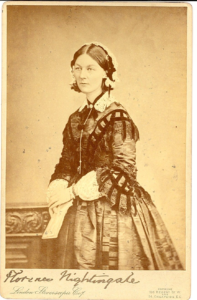
Florence Nightingale, born in 1820, was a pioneering figure in the history of nursing. She dedicated her life to improving healthcare standards and is widely regarded as the founder of modern nursing. Her theories and concepts have influenced nursing practice, education, and research for more than a century. In this article, we will provide a comprehensive summary of all of Florence Nightingale’s theories and concepts, their historical background, and practical applications in different care areas.
Historical Background
Florence Nightingale’s interest in nursing developed during the Crimean War, where she served as a nurse. She observed the poor health conditions and high mortality rates of soldiers due to poor sanitation, lack of proper nutrition, and inadequate care. She developed theories and concepts that emphasized the importance of hygiene, sanitation, nutrition, and environmental factors in promoting health and preventing diseases. Her theories and concepts became the foundation of modern nursing practices.
Florence Nightingale Theories and Concepts:
- Environmental Theory: Florence Nightingale’s environmental theory emphasizes the importance of a clean, quiet, and well-ventilated environment in promoting health and preventing diseases. She believed that the environment plays a crucial role in the healing process of patients, and nurses should ensure that the environment is conducive to healing.
- Notes on Nursing: Florence Nightingale’s book, “Notes on Nursing,” is a comprehensive guide for nurses on patient care, hygiene, and nutrition. The book emphasizes the importance of observation, communication, and compassion in nursing practice.
- Health and Illness: Florence Nightingale believed that health and illness are not just a state of being but a dynamic process influenced by environmental factors. She believed that the goal of nursing is to promote health and prevent illness by creating a healthy environment.
- Nursing Education: Florence Nightingale believed that nursing education is crucial for developing competent and compassionate nurses. She emphasized the need for formal education and training for nurses and the importance of continuing education to keep up with new developments in nursing.
Practical Use of Florence Nightingale’s Theories and Concepts Today
Florence Nightingale’s theories and concepts continue to be relevant in modern nursing practice. Some practical applications of her theories and concepts in different care areas include:
- Infection Control: Florence Nightingale’s emphasis on hygiene and sanitation is essential in preventing the spread of infections. Nurses should ensure that patients are in a clean and sterile environment and follow proper infection control protocols.
- Patient Safety: Florence Nightingale’s environmental theory is critical in promoting patient safety. Nurses should ensure that the environment is free from hazards that could harm patients, such as slippery floors, inadequate lighting, and faulty equipment.
- Pain Management: Florence Nightingale emphasized the importance of empathy and compassion in nursing practice. Nurses should provide emotional support to patients, particularly those experiencing pain, and ensure that they receive appropriate pain management.
- Patient Education: Florence Nightingale believed that patients should be active participants in their care. Nurses should educate patients about their health conditions, treatment options, and self-care measures to promote better health outcomes.
Influence on Quality Improvement, Nursing Research, and Nursing Education
Florence Nightingale’s theories and concepts have had a significant impact on quality improvement, nursing research, and nursing education. Some of her contributions include:
Quality Improvement: Florence Nightingale
Established the first professional nursing school in London in 1860, which set the standard for nursing education. Today, her teachings continue to inspire nursing schools worldwide, promoting the delivery of safe, effective, and patient-centered care.
Nursing Research: Florence Nightingale’s research on the mortality rates of soldiers during the Crimean War was one of the first studies to link poor sanitation and hygiene to disease transmission. Her research has inspired many nursing studies and continues to influence nursing research methods, emphasizing the importance of collecting accurate data and applying statistical analysis.
Nursing Education: Florence Nightingale’s emphasis on formal nursing education and continuing education has had a significant impact on nursing education. Today, nursing programs integrate her teachings into their curricula, teaching students the essential skills, knowledge, and values needed to become competent and compassionate nurses.
FAQs:
What is Florence Nightingale’s most significant contribution to nursing?
Florence Nightingale’s most significant contribution to nursing was establishing the first professional nursing school in London in 1860, which set the standard for nursing education.
Why are Florence Nightingale’s theories and concepts still relevant in modern nursing practice?
Florence Nightingale’s theories and concepts are still relevant in modern nursing practice because they emphasize the importance of providing safe, effective, and patient-centered care through proper sanitation, hygiene, and environmental factors
How did Florence Nightingale’s research on mortality rates influence nursing research?
Florence Nightingale’s research on mortality rates was one of the first studies to link poor sanitation and hygiene to disease transmission. Her research has inspired many nursing studies and continues to influence nursing research methods, emphasizing the importance of collecting accurate data and applying statistical analysis.
Conclusion
In conclusion, Florence Nightingale’s theories and concepts have had a significant impact on nursing practice, education, and research. Her emphasis on providing safe, effective, and patient-centered care through proper sanitation, hygiene, and environmental factors has become the foundation of modern nursing practices. Her contributions to nursing education have set the standard for nursing schools worldwide, promoting the delivery of safe, effective, and patient-centered care. Florence Nightingale’s teachings continue to inspire nurses worldwide, promoting the delivery of safe, effective, and patient-centered care.
